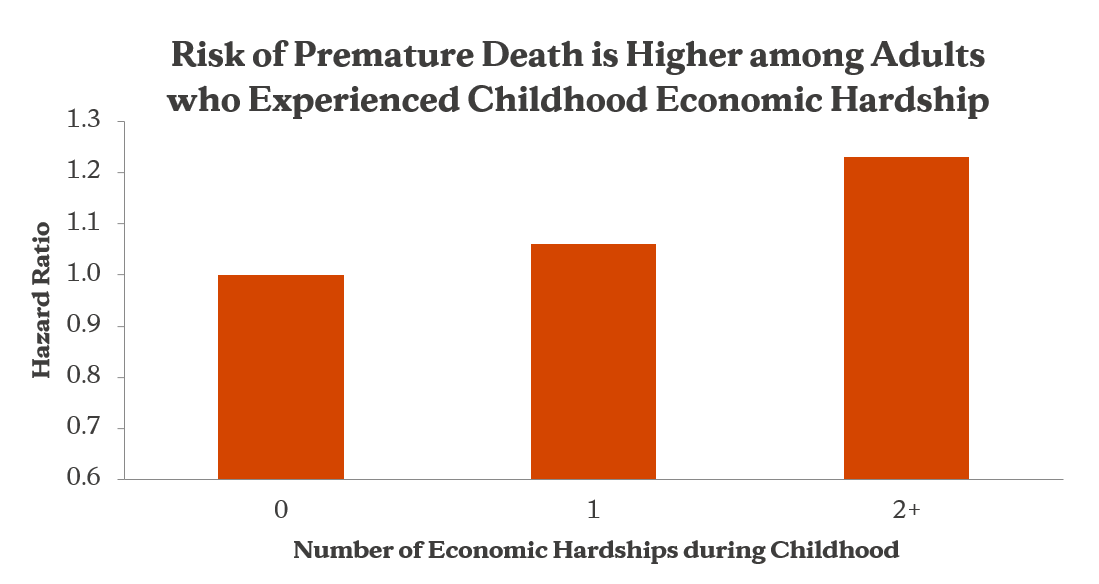Lerner Center for Public Health Promotion and Population Health
Population Health Research Brief Series
Economic Hardship during Childhood Increases the Risk of Premature Death Later in Life
Blakelee R. Kemp
May 2019
DOWNLOAD THE BRIEF [PDF]
View our other research briefs.

Experiencing economic hardship during childhood can have long lasting consequences for health. This is especially true for individuals who face multiple forms of hardship early in life. Adults over the age of 50 who reported experiencing several types of childhood economic hardship, such as moving due to financial difficulties or having poor family finances, were more likely to die over the next 10 years than adults who reported no economic hardship during childhood. In fact,experiencing two or more economic hardships during childhood was associated with a 23% increase in the risk of death from any cause. The trend indicates that with each additional economic hardship experienced during childhood, the risk of early death during adulthood increases.
Data Source: Data are from the 1998-2014 waves of the Health and Retirement Study, available from the University of Michigan (http://hrsonline.isr.umich.edu/). Estimates are based on roughly 2,400 deaths with just over 800 being due to cardiovascular disease. The four childhood economic hardships include: having a father with less than an 8th grade education, having a father with a manual labor occupation, rating family finances as poor, and moving due to family finances. The hazard ratio is a comparison of the risk of death between groups; a hazard ratio of 1.23, for example, means that adults with 2+ childhood economic hardships had a risk of mortality 1.23 times higher than adults who experience no hardship. Chart: Blakelee Kemp
About the Author
Blakelee R. Kemp is a Postdoctoral Fellow in the Aging Studies Institute at Syracuse University (blkemp@syr.edu).